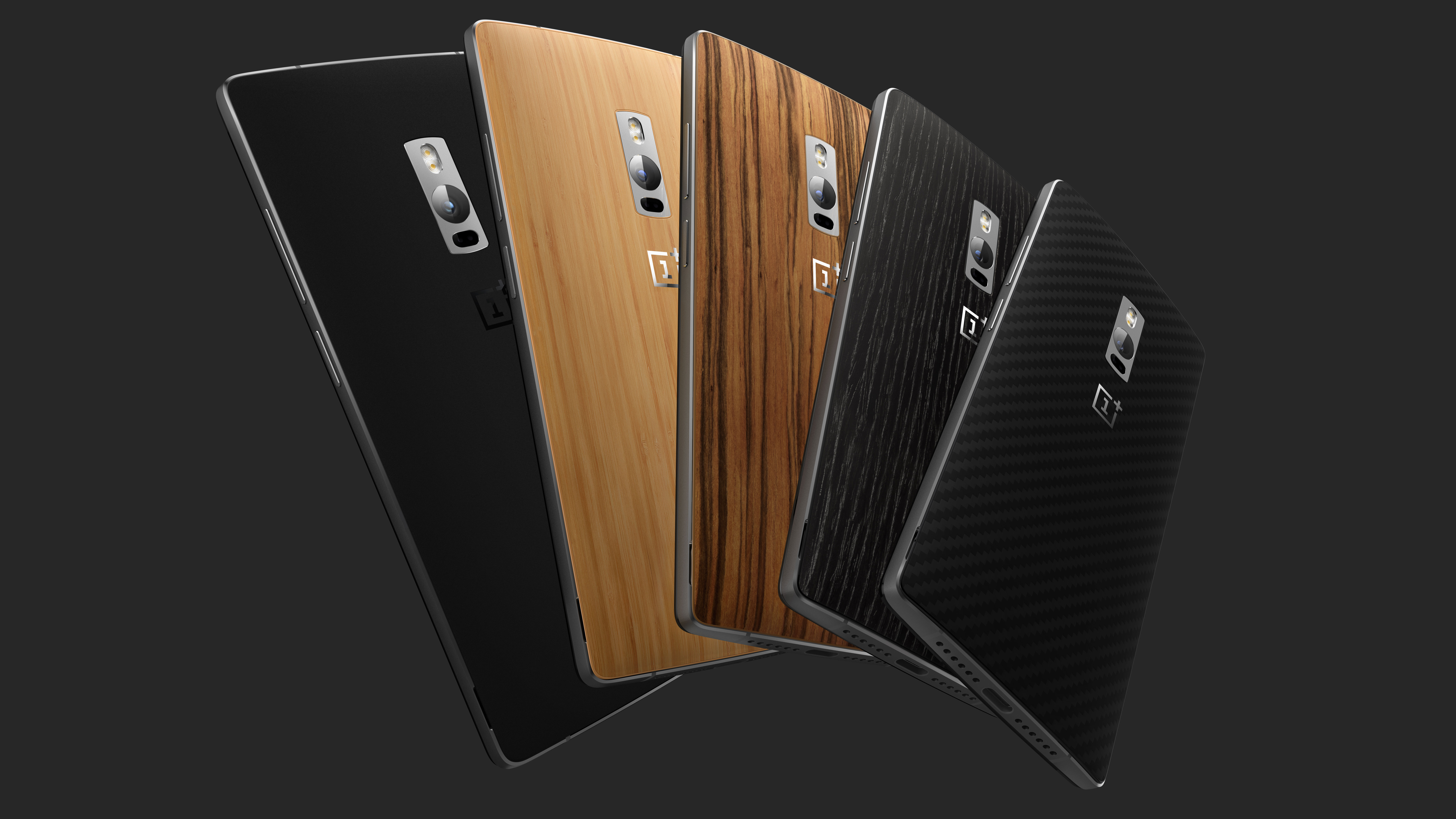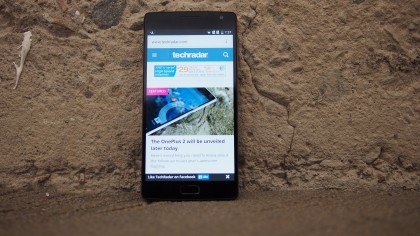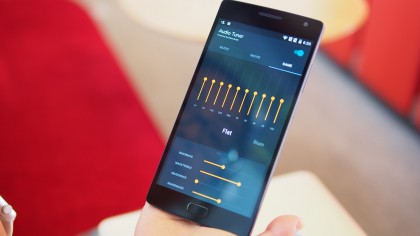OnePlus 2 vs iPhone 6
Can the flagship killer kill the ultimate flagship?

After months of leaks, rumours and speculation OnePlus has shown off its new flagship to the world. The OnePlus 2 is the successor to the underdog OnePlus One and while that phone had nothing to prove, expectations were sky high this time around.
The OnePlus 2 has often been described as a flagship killer, so what bigger flagship to try to take down than the iPhone 6? Here's an early rundown on how the two phones stack up.
Design

The OnePlus 2 certainly has a high-end appearance, with an aluminium-magnesium alloy frame wrapped around the device and a soft Sandstone Black back cover.
But it really comes into its own when you customise it with a different cover. These are sold separately and include Kevlar, Black Apricot, Rosewood and even Bamboo. If there's any real disappointment it's that the OnePlus 2 is a bit chunky at 9.9mm thick.
Apple is known for its design mastery and the iPhone 6 is one of its sleekest creations yet, with a super slim 6.9mm thick build and a premium metal shell.
It looks great and while design is always somewhat subjective we'd argue that the iPhone 6 is probably a better looking phone than the standard version of the OnePlus 2, but the Chinese handset is more customisable and, let's be honest, neither handset looks ugly.
Display

There's a big 5.5-inch 1080 x 1920 LCD screen on the OnePlus 2 and, while some may lament the fact that it's not QHD, it still has a fairly crisp pixel density of 401 pixels per inch. It's incredibly bright too, reaching 600 nits and with great viewing angles you can comfortably use it in almost any situation.
Sign up for breaking news, reviews, opinion, top tech deals, and more.
At 4.7 inches the IPS LCD screen on the iPhone 6 is a lot smaller and it's also lower resolution at 750 x 1334, giving it a pixel density of 326 pixels per inch. So it's not as sharp as the display on the OnePlus 2 and it's not as bright either, but with great contrast and colour reproduction it's still one of the better smartphone screens around.
The biggest difference between the two is undoubtedly the size, as the iPhone 6 is fairly compact for a flagship while the OnePlus 2 is almost a phablet.
Power
With either 4GB or 3GB of RAM (depending on whether you opt for the 64GB or 16GB model) and a 64-bit 1.8GHz octa-core Snapdragon 810 processor the OnePlus 2 certainly has flagship power, rivalling the likes of the HTC One M9 and the Sony Xperia Z3+.
Comparing it to the iPhone 6 is a little trickier as Apple's handsets always look weaker on paper but tend to perform just as well as their Android rivals. The iPhone 6 has just a 64-bit 1.4GHz dual-core Apple A8 processor and 1GB of RAM and yet performance is still pretty slick.
It benchmarks below most 2015 flagships, which is reasonable since they're newer, but it doesn't feel lacking for power. Based on our first impressions the OnePlus 2 is a snappy performer as well, though it can run a little hot.
OnePlus 2 vs iPhone 6: OS

The OnePlus 2 runs OxygenOS, which is pretty close to stock Android 5.1 but with a few features and tweaks, most of which are arguably for the better. For example you can use on-screen gestures to launch apps and functions, drawing an 'O' to launch the camera or a 'V' to turn on the flashlight.
You can also create custom sound profiles and change the accent colours and LED notifications to really make the phone yours.
The iPhone 6 on the other hand runs iOS 8.4. If you've used an iOS device recently you'll know what to expect here, but it too has a slick, intuitive and attractive interface. It's not as customisable but it does still have the best app store around.
James is a freelance phones, tablets and wearables writer and sub-editor at TechRadar. He has a love for everything ‘smart’, from watches to lights, and can often be found arguing with AI assistants or drowning in the latest apps. James also contributes to 3G.co.uk, 4G.co.uk and 5G.co.uk and has written for T3, Digital Camera World, Clarity Media and others, with work on the web, in print and on TV.